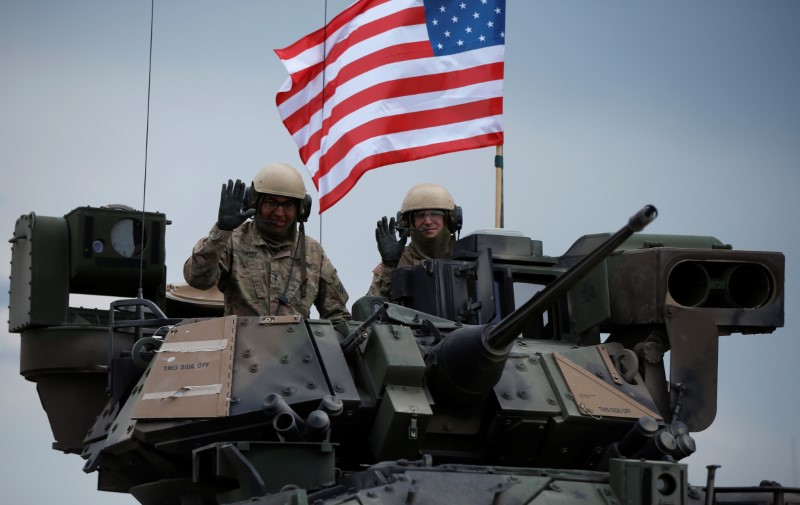By Patricia Zengerle
WASHINGTON (Reuters) - A compromise version of a massive U.S. defense policy bill omits controversial provisions such as a clause Democrats said allowed discrimination against homosexuals and a requirement that women register for the draft.
The $618.7 billion National Defense Authorization Act, or NDAA, will likely come up for a vote in the House of Representatives late this week, and the Senate next week, senior committee staff members told reporters at a background briefing on Tuesday.
During months of negotiations, Republicans and Democrats on the Senate and House Armed Services committees agreed to eliminate a "religious freedom" provision Democrats said would have let federal contractors discriminate against workers on the basis of gender or sexual orientation.
The amendment, introduced by Republican Representative Steve Russell, would have overridden President Barack Obama's 2014 executive order barring federal contractors from discriminating against lesbian, gay, bisexual and transgender workers.
The 2017 NDAA also leaves out a requirement that women register for the military draft. Many Republican lawmakers, uneasy with moves toward allowing women in combat, had objected to that provision.
Instead, the NDAA requires a study of the entire selective service system.
The bill also provides a 2.1 percent increase in military pay, the biggest such raise in five years.
The bill could run into problems with Democrats.
It includes $3.2 billion more in defense spending than Obama requested, which is not matched by a similar increase in non-defense spending. Obama vetoed last year's NDAA because of a similar increase for the Pentagon, part of a continuing tug-of-war between Republicans and Democrats over spending policy.
The NDAA keeps language restricting transfers from the military prison at the Guantanamo Bay Naval Base that was included in previous bills. Those restrictions were one reason Obama vetoed the 2016 NDAA, but he later signed a version of the legislation that included them.
Lawmakers also agreed to slash the White House's National Security Council to no more than 200 positions, from about 400, after Pentagon complaints the NSC was too involved in decision-making.
The NDAA expands a program to provide visas to Afghans who worked for the U.S. military and diplomats as interpreters, allowing a further 1,500 visas.

It omits protections for the greater sage grouse. House Republicans do not want the bird to be declared an endangered species, arguing it would put too much land in the western United States off limits for military training.